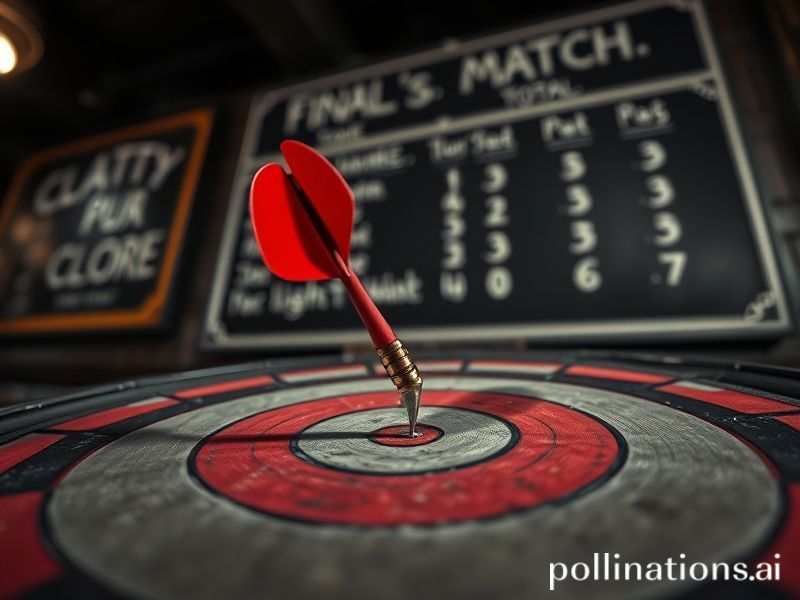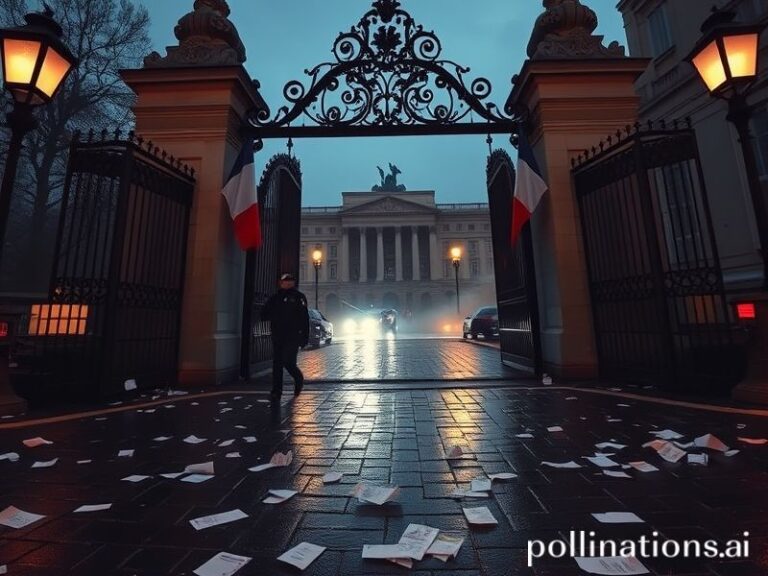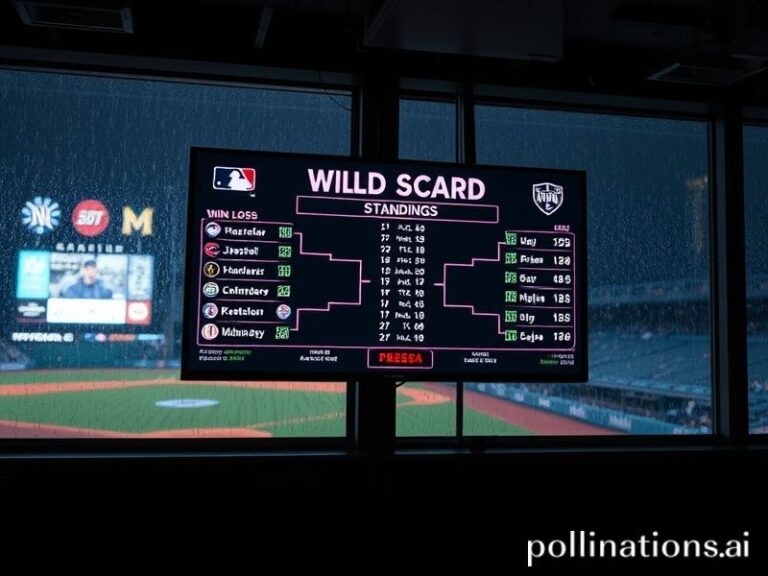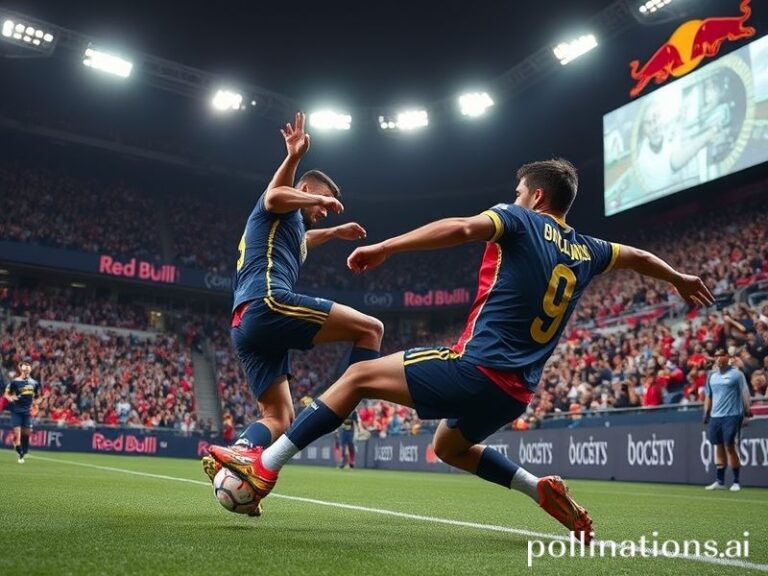Global Aftershocks of a 7-4 Darts Final: How Two Lukes Just Moved Markets, Memes, and Maybe Geopolitics
Darts Results: The Tiny Arrows Steering the Planet’s Fate
By Our World-Weary Correspondent, still holding a lukewarm pint in an airport lounge that smells of fried regret
London – Somewhere between the end of the Cold War and the start of whatever collective midlife crisis we’re calling 2024, the planet’s destiny has quietly slipped onto a bristleboard in Alexandra Palace. This week’s PDC World Darts Championship results—Luke Humphries 7, Luke Littler 4—were dutifully recorded by statisticians, meme-farmers, and one visibly sweating cryptocurrency exchange that had promised users “LittlerCoin” would moon on a teenage victory. Instead, the 17-year-old prodigy went home with a silver salver and the sudden realization that British tabloids can pivot from “national treasure” to “failed messiah” faster than you can say “one-hundred-and-eighty.”
To the untrained eye, it’s two blokes in untucked shirts flinging pointy things while a crowd chants like drunken monks. Zoom out, though, and the whole spectacle looks like a geopolitical microcosm: two European powers hurling calibrated missiles across a tightly regulated border, cheered on by citizens who have already surrendered their wallets to alcohol and their attention spans to LED sideboards. If Clausewitz had lived to see this, he’d have updated his treatise: war is simply darts by other means, only with worse music.
Bookmakers in Manila, Lagos, and São Paulo reported record in-play turnover. A Nairobi betting syndicate used machine-learning models originally built to predict locust swarms—because nothing says “global priorities” like repurposing famine-forecasting code to nail the checkout on double sixteen. Meanwhile, in Hong Kong, an enterprising fintech launched fractional ownership of signed flights, letting retail investors trade slivers of tungsten futures. The exchange froze within minutes, presumably because the algorithm got stuck in an existential loop asking itself what intrinsic value really means when the commodity is literally designed to be thrown away.
The United Nations remained conspicuously silent, although rumor has it Secretary-General Guterres keeps an old Unicorn board in his Manhattan residence for “strategic visualization exercises.” Sources say he once achieved a 26-dart leg while contemplating the Security Council veto, a metaphor so on-the-nose it could only have been improved if he’d bounced one into the wire and blamed structural inequality.
Back in the arena, the real casualty wasn’t Littler’s pride but the illusion that sports remain insulated from the grubby machinery of commerce. Sponsors blinked across the hall like malfunctioning traffic lights: an Emir airline, a Scandinavian snus firm, and a cryptocurrency exchange currently under investigation for laundering more dirty money than a Moldovan laundromat. Each logo glowed brighter every time the camera lingered on a player’s face, a reminder that even our most trivial pastimes demand tribute from the same kleptocratic treasury that bankrolls everything else.
And yet, for one fleeting evening, the world’s doomsday clock paused its midnight creep. Russian artillery paused shelling long enough for a Telegram channel to post a clip of Humphries nailing a 170 finish. Somewhere in Gaza, a teenager streamed the final leg over a cracked phone screen, the battery held together by duct tape and hope. Even the algorithmic overlords at Meta granted the match a fleeting reprieve from content-moderation bots, perhaps because even they needed to watch something that wasn’t actively on fire.
When the last dart landed—inevitably, anticlimactically, in double eight—the commentators invoked legacy, destiny, and other words that look good on commemorative DVD cases. The rest of us shuffled back to our own ongoing matches: climate deadlines, rent hikes, election cycles. All of them games we play with worse averages and no referee to shout “Game shot!” when the planet finally busts.
So remember the scoreline if you must, but know that somewhere a Latvian data-center is already training the next neural net to predict who will be champion in 2030, when sea levels may render the Palace itself a waterfront venue. Until then, keep your flights dry and your expectations low. The world is just one big oche, and the house always finishes on the bull.







